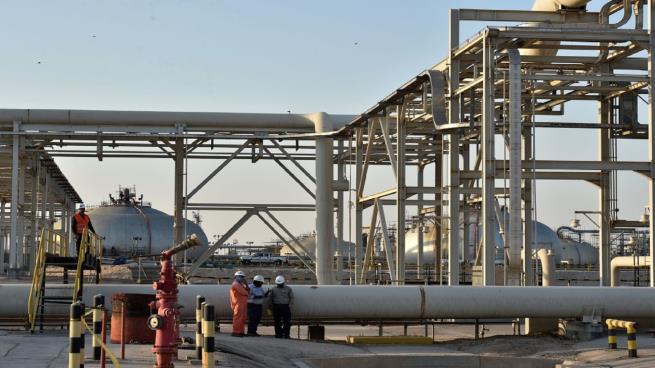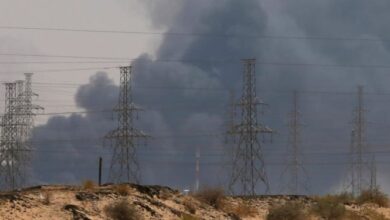After price war… Saudi loses Chinese markets

The oil price war that Crown Prince Mohammed bin Salman sparked with Russia last March was not only limited to real-time loss, but went beyond the Kingdom of Saudi Arabia’s loss of global markets.
Statistical data showed the Kingdom’s loss of China’s markets, making Russia the largest public oil exporter in April.
Russia surpassed Saudi Arabia to become the largest exporter of crude oil to China in April, according to customs data, as exports rose 18 percent from a year ago as refiners seized raw materials at cheap prices amid a price war between producers.
Russian shipments reached 7.2 million tons last month, equivalent to 1.75 million barrels per day, according to figures released by the General Administration of Customs, today, Tuesday, compared to 1.49 million barrels per day in April 2019 and 1.66 million barrels per day in March.
Supplies from Saudi Arabia decreased to 1.26 million barrels per day, from 1.53 million barrels per day in April 2019 and 1.7 million barrels per day in March.
China’s total imports of crude oil in April were 9.84 million barrels per day, up from 9.68 million barrels per day in March, but a significant decrease from 10.64 million barrels per day in April last year, according to data released earlier in the year.
Despite this, imports for the first four months of the year increased 1.7 percent year on year, as Chinese oil refineries used to plunge crude prices.
Analysts estimate that the average proportion of productive capacity utilized in independent refineries, known as “teapots”, rose to about 70 percent in late April, the same level before the outbreak of the virus, but they exclude that state-backed refining companies return to their normal levels before May.
Refinitiv’s oil research team expects that China’s May imports will reach an unprecedented high level of 53.7 million tons, or 12.7 million barrels per day, with record volumes from OPEC producers.
In May, Chinese refiners receive their first crude shipment from the United States since November, a shipment that was seized in March at the start of the oil price crash.
Customs have not reported any imports from Venezuela since last October, with the Chinese National Petroleum Corporation, the largest buyer of Caracas oil, avoiding loading any crude from there so as not to violate US sanctions.
However, some Venezuelan shipments diverted to Malaysia for mixing before exporting to China, which resulted in a significant increase in Malaysian shipments, which rose more than three times in the first four months.
Saudi Aramco previously announced that its first-quarter profit fell 25 per cent compared to last year.
The revenue of oil exports during the first quarter fell 24% year on year to $34 billion, and the Kingdom’s reserve assets fell to the lowest level in 9 years, to $473.3 billion.
Foreign currency reserves in the central bank had fallen in March at the fastest rate in at least 20 years and the lowest level since 2011.
The Kingdom, the world’s largest oil exporter, did not come out of the deflationary cycle, which has controlled the economy for many months, as IHS Market International Research said in a report that the Kingdom’s purchasing managers ’index fell to the level of 44.4 points, compared to 42.4 points in March.
A drop of the index from the level of 50 points means that there is a contraction, while exceeding this level indicates growth.
The PMI is based on five main pillars, namely new orders, inventory and production levels, supplier delivery volume, and the employment and work environment.
US President Donald Trump quickly acted to persuade the kingdom and Russia to agree to cut oil production in April. The agreement did not help in saving oil prices, as the attempt was few and late.
The Kingdom directed the National Oil Company (Aramco) to reduce its production of crude oil for June by an additional voluntary amount of one million barrels per day, above the reductions previously promised by the Kingdom under the (OPEC Plus) agreement.
The Kingdom faces $30 a barrel, the worst economic crisis and the possibility of losing the American protector.





